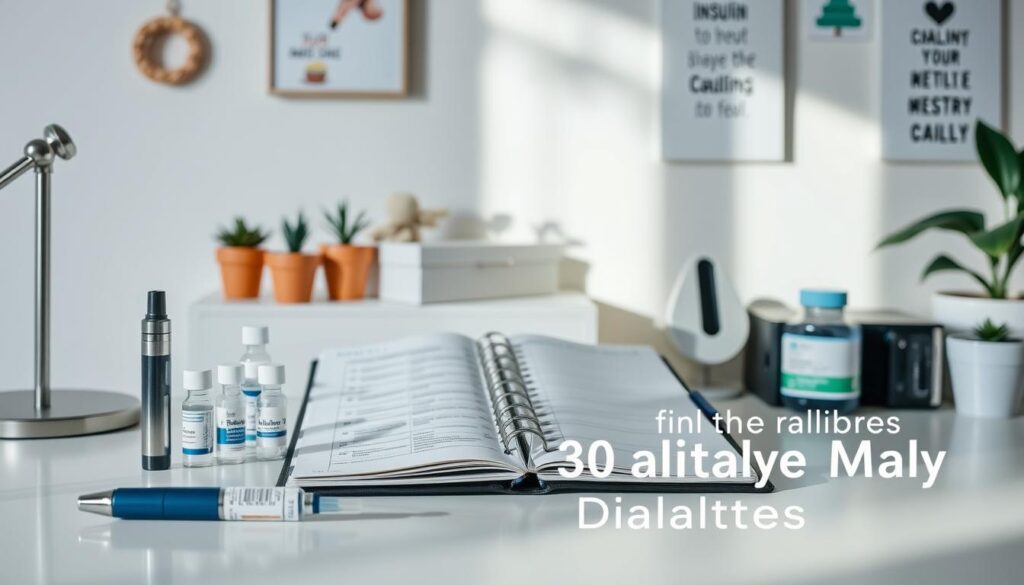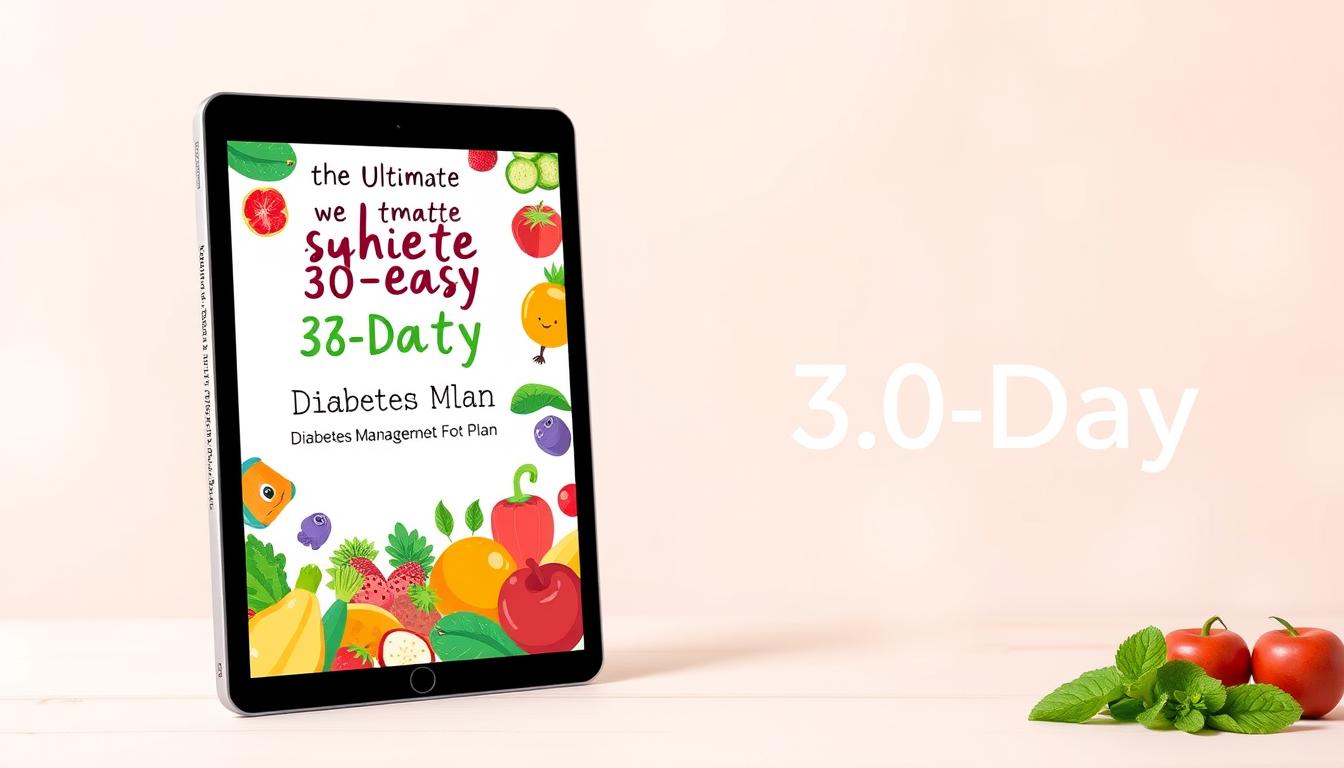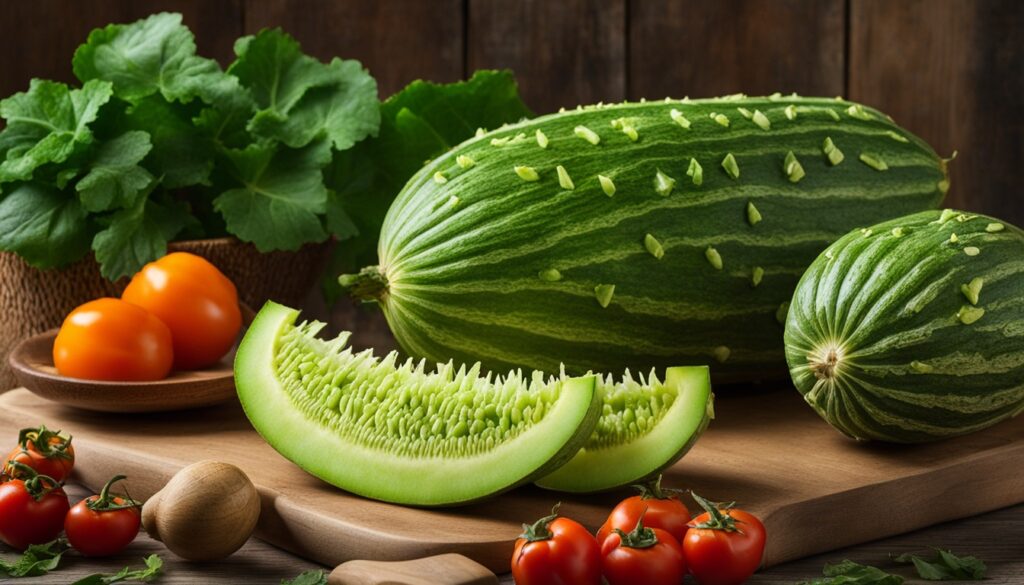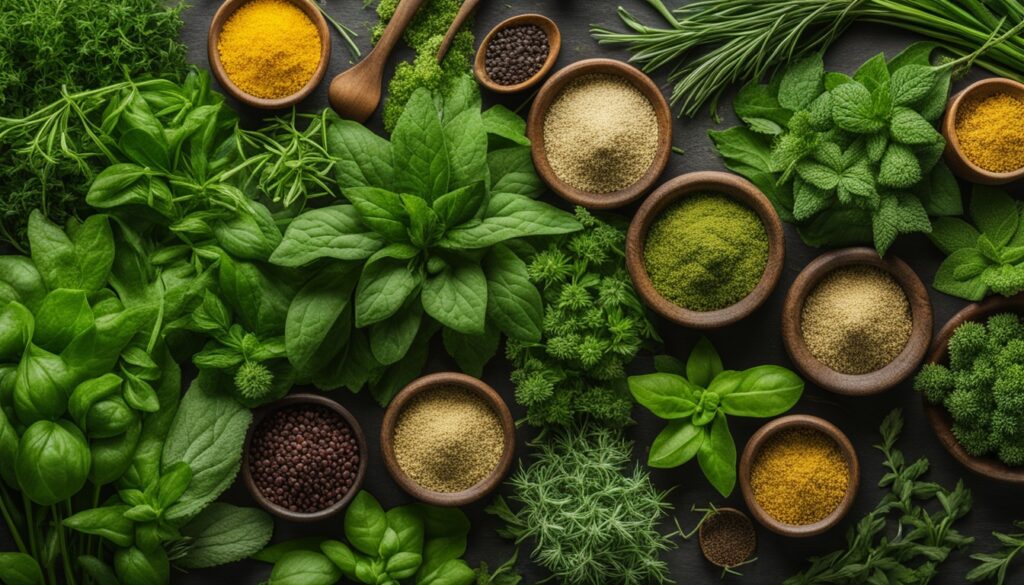Living with diabetes isn’t easy—but you’re not alone. Our Diabetes Management eBook offers a gentle, step-by-step 30-day plan to help you feel more in control. With simple self-care tips, blood sugar control strategies, and a focus on your overall wellness, this guide is here to support your journey toward a healthier, more balanced life.
Key Takeaways for Better Diabetes Self-Care
- Unlock the power of a comprehensive 30-day diabetes management plan
- Discover practical strategies to optimize your blood sugar control
- Explore the benefits of digital health solutions for diabetes management
- Gain personalized guidance from experts to achieve your health goals
- Embrace a holistic approach to managing your condition and thriving
Start a 30-day journey to better diabetes care. You’ll get the knowledge and support to manage your diabetes. Get ready to unlock your full potential and live a healthier life.
Understanding Diabetes and the Power of Digital Health Management
Diabetes is a complex metabolic disorder that affects millions worldwide. It comes in two main types: type 1 and type 2. Knowing how these conditions work is key to controlling blood sugar and reversing type 2 diabetes. With more people getting diabetes, digital health tools are changing how we manage wellness.
Types of Diabetes and Their Impact
The Type 1 diabetes happens when body cannot produce insulin a hormone that maintains blood sugar. Type 2 diabetes is frequently linked to lifestyle factors such as limited physical activity and living in a higher-weight body.If left unchecked, both types will result in major issues such as nerve damage and heart disease.
Why Digital Solutions Matter
Digital health technologies, like mobile apps and wearable devices, have changed how we manage diabetes. They track data in real-time, offer personalized advice, and make learning easy. This lets patients play a bigger role in their wellness and blood sugar control.
The Rise of Health eBooks
Digital health eBooks have been a big help in managing diabetes. They are interactive and full of useful information. They help people learn about their condition, get advice, and take care of themselves. eBooks are a powerful tool for type 2 diabetes reversal and keeping well.
Get Started with the Ultimate 30-Day Diabetes Management eBook EBooks
Managing diabetes just got easier with the Ultimate 30-Day Diabetes Management eBook. This digital guide helps people with diabetes take charge of their health. It sets them on the path to reaching their self-care goals.
The eBook guides you through diabetes management, one day at a time. It covers key topics like understanding diabetes, using digital health tools, and managing blood sugar. It also focuses on nutrition and exercise. This eBook is your go-to for improving your diabetes care.
Unlock the Key Features
- Detailed information on the different types of diabetes and their impact
- Insights into the rise of health eBooks and their benefits for diabetes self-care
- Step-by-step instructions for accessing and navigating the eBook’s user-friendly interface
- Daily challenges and actionable tips to help you stay motivated and on track
- Exclusive access to a comprehensive collection of diabetes-friendly recipes and meal plans
Embrace the Power of Digital Tools
The Ultimate 30-Day Diabetes Management eBook uses digital tools to help manage diabetes. It shows how to use mobile apps, online communities, and virtual coaching. These tools work with the eBook’s strategies to improve your care.
Start a 30-day journey to better diabetes management.
This journey empowers you to control your diabetes and improve your health. Get ready to discover the secrets to managing diabetes better with this valuable resource.
Your Complete Guide to Blood Sugar Monitoring
Learning to monitor your blood sugar is key to managing diabetes well. Knowing the right tools, sticking to a testing routine, and understanding your results helps. This way, you can make smart choices to improve your health.
Essential Tools for Glucose Testing
Having the right tools is crucial for consistent glucose monitoring. Get a reliable glucose meter for accurate readings. Also, think about using continuous glucose monitoring (CGM) devices. They give you real-time data and trends to understand your body better.
Creating Your Testing Schedule
- Make a regular testing plan that fits your life and diet.
- Check your glucose levels before and after meals, and at night. This helps spot patterns.
- Change your testing plan if your doctor suggests it or if you notice changes.
Understanding Your Numbers
It’s important to know what your blood sugar control results mean. Learn the target ranges for your condition. Also, know the signs of high and low blood sugar. Being alert and acting quickly helps keep your glucose monitoring on track.
| Blood Sugar Range | Recommended Action |
|---|---|
| 70-130 mg/dL (fasting) | Within the target range |
| Less than 70 mg/dL | Treat low blood sugar immediately |
| Greater than 130 mg/dL (fasting) | Adjust insulin or medication as needed |
Regular glucose monitoring is vital for better blood sugar control and diabetes management. With the right tools, a personal testing plan, and understanding your results, you’re on the path to better health and diabetes management goals.
Nutrition Strategies for Optimal Blood Sugar Control
Keeping blood sugar stable is key for those with diabetes. A healthy eating guide can help a lot. It shows how to use low-carb recipes and plan meals to control glucose levels.
Knowing how food groups affect your body is important. Carbohydrates, especially, can raise blood sugar levels. Choosing low-carb foods helps keep your blood sugar steady.
- Choose high-fiber, nutrient-rich carbs like veggies, whole grains, and legumes.
- Avoid refined and processed carbs like white bread, pastries, and sugary drinks.
- Add healthy fats and proteins to slow carb absorption and provide steady energy.
Controlling portion sizes is also crucial. Paying attention to serving sizes helps manage blood sugar and keeps your diet balanced. Consistency in meal planning is vital for better diabetes management.
“The key to successful diabetes management is finding the right balance of nutrition, portion sizes, and overall lifestyle adjustments.”
A detailed healthy eating guide with low-carb recipes and meal planning is very helpful. Making smart food choices and following a balanced diet can help you manage diabetes better. This improves your overall quality of life.

| Food Group | Impact on Blood Sugar | Recommended Choices |
|---|---|---|
| Carbohydrates | Significant impact, can cause spikes and dips | High-fiber, non-starchy vegetables, whole grains, legumes |
| Proteins | Moderate impact, can help slow absorption of carbs | Lean meats, fish, eggs, tofu |
| Fats | Minimal impact, can provide steady energy | Healthy fats like olive oil, avocado, nuts, and seeds |
Effective Exercise Routines for Diabetes Management
Regular physical activity is key for managing diabetes. Adding tailored exercise routines to your life can boost insulin sensitivity and control blood sugar. It also supports your overall health. Let’s look at the benefits of different exercises for those with diabetes.
Cardio Workouts for Blood Sugar Balance
Cardio exercises like brisk walking, swimming, or cycling help balance blood sugar. They make your body use glucose better. Try to do at least 30 minutes of moderate cardio most days.
Strength Training Benefits
Strength training also helps manage diabetes. It builds muscle, improving insulin sensitivity and blood sugar control. Do strength training two to three times a week, with rest in between.
Safe Exercise Guidelines
- Check your blood sugar levels before, during, and after exercise to monitor your response.
- Stay hydrated and carry a fast-acting carbohydrate source, such as glucose tablets, in case of low blood sugar episodes.
- Wear comfortable, well-fitting shoes and socks to prevent foot injuries.
- Consult with your healthcare provider to develop a personalized exercise plan that considers your individual needs and fitness level.
By mixing cardio and strength training, you can manage your diabetes better. Start slowly and increase your workout intensity and time as you get fitter.
Medication and Insulin Management Made Simple
Dealing with diabetes medications and insulin can seem tough. But, with the right help, it’s easier. We’ll cover the basics of insulin management and how to simplify your medication routine for better blood sugar control.
Understanding Insulin Therapy
For people with type 2 diabetes, insulin is key for managing blood sugar. It’s important to know about the different insulins, how they work, and how to use them right. We’ll go into the details to make you a knowledgeable insulin user.
Medication Optimization
Managing diabetes often means using several medications, including insulin. Finding the right mix of drugs with your doctor’s help can greatly improve your health. We’ll talk about how to adjust your medications for better results.
Storage and Administration Techniques
Keeping insulin and other diabetes meds right is key for their effectiveness and safety. We’ll share the best ways to store insulin, how to inject it, and tips for making medication part of your daily life.
| Insulin Type | Onset | Peak | Duration |
|---|---|---|---|
| Rapid-acting | 5-15 minutes | 30-90 minutes | 2-4 hours |
| Short-acting | 30 minutes | 2-3 hours | 5-8 hours |
| Intermediate-acting | 1-2 hours | 4-10 hours | 12-16 hours |
| Long-acting | 6-10 hours | No peak | 20-24 hours |
By learning about insulin and medication, you can take charge of your type 2 diabetes. This knowledge will help you work towards insulin management and type 2 diabetes reversal.

“Proper insulin management is key to achieving optimal blood sugar control and improving overall health.”
Lifestyle Modifications for Long-term Success
Managing diabetes for the long haul needs more than just medicine and food changes. Adding key lifestyle changes can boost your diabetes care and improve your overall health.
Stress Management Techniques
Stress can raise blood sugar levels, so finding ways to manage it is vital. Try deep breathing, meditation, or yoga to relax. Enjoying hobbies like reading or listening to music can also help.
Sleep Optimization Tips
Good sleep is key for healthy blood sugar and well-being. Stick to a sleep schedule and make your bedroom quiet. Avoid caffeine and screens before bed. Try gentle stretches or mindfulness to relax.
Building Healthy Habits
Creating lasting habits is crucial for diabetes care success. Begin with small changes, like a short walk after meals or choosing healthier snacks. Celebrate your small wins and be patient with yourself.
| Lifestyle Modification | Benefits for Diabetes Management |
|---|---|
| Stress Management | Helps regulate blood sugar levels, promotes overall well-being, and reduces the risk of complications. |
| Sleep Optimization | Supports healthy blood sugar control, boosts energy levels, and enhances cognitive function. |
| Building Healthy Habits | Fosters long-term sustainability in diabetes self-care, promoting better health outcomes. |
Adding these lifestyle changes to your diabetes care plan can lead to long-term success. Remember, everyone’s journey is different. Be patient, celebrate your achievements, and enjoy the positive changes for your health.
Meal Planning and Recipe Collection
Keeping a healthy diet is key to managing diabetes well. We’ll explore a detailed guide on meal planning and share tasty, diabetes-friendly recipes. These will help you control your blood sugar better.
Crafting a Healthy Eating Guide
Creating balanced meals is easy. Our guide gives you the tools to plan and cook meals that fit your diet needs. You’ll learn about macronutrients and find lots of low-carb recipes to help manage your diabetes.
Discover Delectable Low-Carb Recipes
Enjoy a delicious collection of low-carb recipes that are good for diabetes and full of flavor. Our library has everything from main dishes to snacks. Try grilled salmon with veggies, zucchini noodle stir-fry, or creamy avocado chocolate mousse. They’re all designed to keep your blood sugar stable.
Meal Planning Made Easy
Our step-by-step guide makes meal planning simple. You’ll learn to make weekly meal plans that meet your nutritional needs and include your favorite dishes. Plus, we have tips to make grocery shopping easier. With our help, you’ll enjoy tasty, diabetes-friendly meals with confidence.
“Eating well is not about deprivation, it’s about nourishing your body with the right balance of nutrients.”
A healthy eating plan is more than just managing diabetes. It’s about living a lifestyle that boosts your overall health. Explore our detailed resources and start enjoying mindful, delicious meal planning.
Tracking Progress and Celebrating Milestones
Starting a journey to manage your diabetes is both thrilling and tough. It’s key to watch your progress and celebrate your wins. Digital tools and reachable goals help keep you motivated and on track in your 30-day diabetes management plan.
Using Digital Tools
Technology has changed how we care for diabetes, offering many digital tools. Use mobile apps, wearable devices, and online platforms to track your glucose monitoring and health. These tools give you insights into your progress, helping you make better choices for your diabetes self-care.
Setting Achievable Goals
Setting realistic goals is vital for staying motivated and successful. Identify areas you want to improve, like stabilizing blood sugar or being more active. Break down big goals into smaller steps you can do in 30 days. Celebrate every small win as you move towards your big goals.
- Set specific, time-bound targets (e.g., reduce average blood sugar by 10% within 30 days)
- Use digital tools and self-monitoring to track your progress regularly
- Change your goals as needed to keep feeling accomplished and motivated
By using digital tools and setting achievable goals, you’ll be in charge of your diabetes self-care journey. You’ll be able to monitor your progress and celebrate your successes.
Community Support and Resources
Managing wellness and diabetes self-care is easier with a supportive community. Having others who get what you’re going through can offer great insights and encouragement. It also gives you a sense of belonging.
Look into online forums and support groups for diabetes. These places are safe to share your experiences and get advice from people who know what you’re going through. You can join in on discussions, make new friends, and find inspiration from others.
- Find local and national diabetes support groups for meetups, workshops, and social events.
- Use digital tools and mobile apps to connect with wellness fans and diabetes self-care experts.
- Keep up with new research and treatments by following trusted online sources and blogs.
“The power of community is undeniable when it comes to managing a chronic condition like diabetes. Connecting with others who truly understand your experiences can make all the difference in your wellness journey.”
Join a strong diabetes community for support and friendship. Together, you can face challenges, celebrate wins, and find new ways to improve your wellness and diabetes self-care.
Conclusion
Congratulations on finishing the ultimate 30-day diabetes management eBook! You’ve learned a lot about managing your type 2 diabetes. This includes how to check your blood sugar and eat right. You’ve also learned about exercise.
These tips can help you control your diabetes better. They might even help you reverse it.
Now, keep up the good work. Use what you’ve learned and adjust it to fit your life. Managing diabetes is a long-term effort. But with the right approach, you can succeed.
Stay focused on your health. Ask for help from your doctor or online diabetes groups.
By using what you’ve learned, you’ll see better blood sugar control and more energy. Digital health tools can help a lot. Celebrate every success on your journey.
Your hard work will change your life and inspire others. The ultimate 30-day diabetes management eBook is just the start of your journey to better health.
Here are some trusted resources on diabetes management from well-known sites:
Mayo Clinic – Comprehensive guides on managing diabetes, symptoms, and treatment options.
Visit Mayo Clinic Diabetes Center
American Diabetes Association – Educational articles, meal plans, and tools for diabetes care.
Visit American Diabetes Association
National Institute of Diabetes and Digestive and Kidney Diseases (NIDDK) – Research-backed information on diabetes prevention and management.
Centers for Disease Control and Prevention (CDC) – Resources on diabetes prevention, control, and living well.
These sites offer reputable advice for those looking to improve their diabetes management knowledge
FAQ
What is the Ultimate 30-Day Diabetes Management eBook?
The Ultimate 30-Day Diabetes Management eBook is a digital guide. It helps you manage your diabetes and improve your health in 30 days. It offers practical tips, expert advice, and daily plans to change how you manage diabetes.
What key features does the eBook include?
The eBook covers many topics like blood sugar monitoring and nutrition. It also talks about exercise, insulin management, and lifestyle changes. You’ll find meal plans, progress tracking tools, and access to a supportive community.
How can the eBook help with blood sugar control?
The eBook teaches you about glucose testing and understanding your numbers. By learning to monitor your blood sugar, you can make better choices. This helps keep your levels stable and improves your diabetes care.
What kind of nutrition strategies are covered in the eBook?
The eBook shares nutrition tips to keep your blood sugar stable. It talks about meal planning, portion control, and how different foods affect your glucose. You’ll also get diabetes-friendly recipes and meal plans.
How does the eBook address exercise and physical activity?
The eBook shows how exercise helps control diabetes. It includes exercise programs like cardio and strength training. It also gives safe exercise guidelines to help you start.
How does the eBook help with medication and insulin management?
The eBook explains diabetes medications and insulin therapy. It covers storage, administration, and how to adjust your regimen with your doctor. This ensures safe and effective medication management.
What lifestyle modifications are recommended in the eBook?
The eBook suggests lifestyle changes for better diabetes management. It covers stress management, sleep tips, and building healthy habits. These changes support long-term diabetes management success.
How can the eBook help with tracking progress and celebrating milestones?
The eBook teaches you to use digital tools to track your progress. It helps you set goals and celebrate your achievements. This keeps you motivated and focused on your self-care journey.
What kind of community support and resources are available?
The eBook connects you with a community of people managing diabetes. You’ll find online forums, support groups, and resources. These help enhance your diabetes management journey and share experiences with others.



